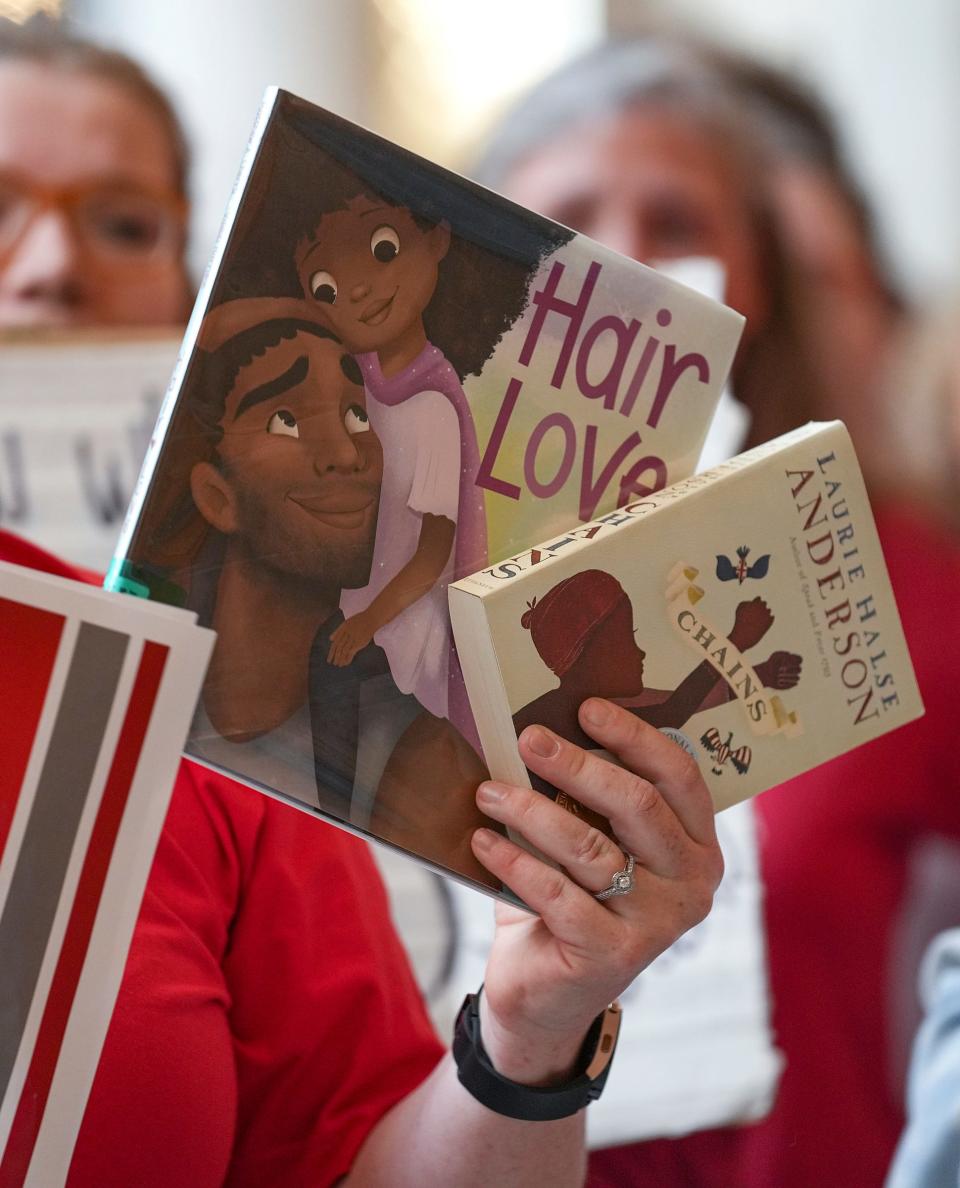Op/Ed: Book ban tramples on rights of parents to decide what's right/wrong for their child
Over a century ago, a headline in The Indianapolis Star screamed in all capitals, “LIFE UNDER LIBRARY BANS.” The School Commission’s Library Committee prohibited Life magazines in all public reading rooms often used by schoolchildren. “The authorities had received complaints from parents, who said the magazine was poisoning children’s minds.”
Today our public schools have libraries, and children aren’t forced to go to public reading rooms. But, our general assembly recently handcuffed Hoosier school librarians with the passage of legislation that provides a procedure to request removing books from school libraries. Signed into law earlier this month by Gov. Eric Holcomb, a new law can result in a felony and prison time for librarians who harbor “offensive” books.
Language in the new law can consider certain materials as harmful to minors, akin to existing language for obscene materials in the Indiana Code. The final bill is here.
Banned books legislation signed: Gov. Holcomb signs book banning measure
School and information specialists are trained teachers with specialized subject expertise who sustain one of Indiana’s most valuable treasures: our knowledge. Libraries and school librarians do not exist in a vacuum. Each library functions within a school corporation’s budget and existing acquisition guidelines. The new legislation heaps new layers of bureaucracy on librarians, already coping with budgetary and staff shortages. The law requires schools to publish a materials catalog and offer a process for parents to request the removal of materials.

Growing up in a family of readers, I visited my school and public library frequently. In high school, I read “To Build a Fire” by Jack London. In the short story, a man walks alone with his dog in the frigid Yukon Territory of Canada. The man slips through the ice and must build a fire to warm his feet and save himself from freezing to death.
Missing books: Appleton: An afternoon at the Noblesville library, where children's books are under siege
Though I read this story half a century ago, it is etched into my memory. The author slowly builds tension, which still grips me years later. London’s themes often centered around fears common to people — fear of self, nature and others different from us. Access to library materials taught me about the world beyond my small Indiana hometown and exposed me to the world’s broader fears.
Indiana parents should have the right — and even the obligation — to monitor what their children read.
But do parents have the right to decide for everyone else?
No. In a free society, we do not. Any discussion of a particular work’s morality can quickly descend into an endless, icy slope. One parent may object to “Heather Has Two Mommies,” while another finds “Huck Finn” reprehensible. Indiana has, however, decided through this bill that the individual can assess what is right and moral for the common good.
In the 1970s, many Hoosier schools embraced a more diverse literature curriculum called phase-elective English. I took a comparative literature course that examined classic literary poems against peace songs by Leonard Cohen and Bob Dylan. Some parents objected to the anti-war songs, an echo of the century ago brouhaha over Life magazine.
Empty shelves at the library: Teen shelves half empty at Hamilton East as library conducts $300K board-pushed book review
What fear motivated those parents about anti-war songs? In “To Build a Fire,” the protagonist loses his battle against nature, his fear a fatal reality. So, what is the fear that motivated the new legislation?
Last week, Florida’s governor, Ron DeSantis, signed legislation restricting the discussion of racism, sexism and oppression on state-supported college campuses. As the new legislation demonstrates, I fear a government that continues destroying freedom of thought and prosecuting those encouraging diverse education.
In her newsletter, Civil Discourse, former federal judge Joyce Vance sums up the issue, “A strong system of public education is fundamental to keeping the Republic. Any local, state, or national elected official who tries to dismantle it should be called out and routed in future elections.”
What can I do:
Information from the Anti-Defamation League
American Library Association Fight Censorship Page
Amy McVay Abbott is a journalist and author who lives in southwestern Indiana.
This article originally appeared on Indianapolis Star: Preposterous! Book ban adds bureaucracy and removes parents' rights

